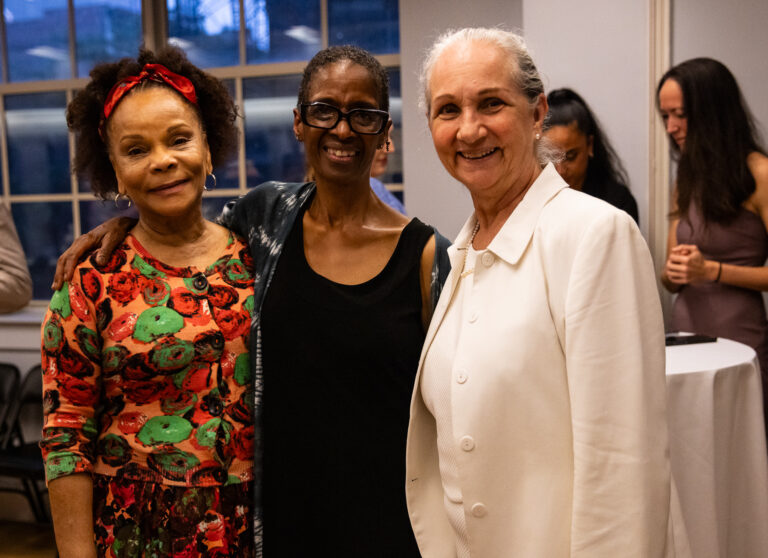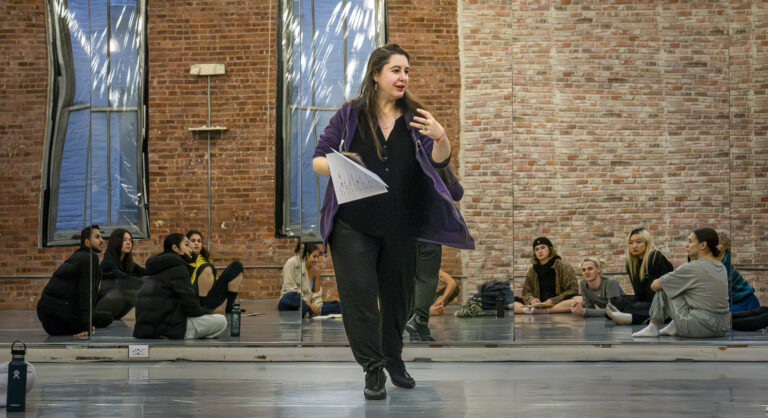
Compiling a list of references is an important part of the application process for many schools, summer intensives and even company positions. In combination with an in-person or virtual audition, photographs and a resumé, recommendations help faculties and artistic staff make their decisions.
With audition season right around the corner, your students may be considering asking you to play the vital role of reference, or perhaps they already have.
We spoke with dance educators who have years of experience referring students—and serving on audition panels—to gather some tips on how to be the best reference you can be.
Know What to Highlight
Reference letters allow application panels to learn things about a student that they wouldn’t necessarily be able to see in an audition, Jared Redick, assistant dean of ballet at the University of North Carolina School of the Arts, explains. This means emphasizing aspects of a student’s personality, like their ability to work well with others or their fortitude when overcoming challenges.

“When you’re reading a reference, when you’re looking at applications, you’re trying to understand how this person will fit in the program or company or school,” Redick says. “You want to get a sense of who they are.”
Susan Weber, who teaches and advises the studio company at Berkeley Ballet Theater and directs the school’s Parkinson’s-disease program Dance for PD, adds that it’s important to “talk about their work ethic—not just what they do, but how they do it.” She also urges teachers to avoid descriptions of a student’s physical features when serving as a reference. Instead, focus more on their personality traits.

Crafting a Reference Letter
Some programs might require a reference to submit a letter of recommendation. Weber suggests opening your letter with a few words about your relationship to the student. Make sure to note how long you’ve known them, whether they’re a student in your class, or if you’ve rehearsed a work they’ve been cast in. Then, she says, it usually works well to include a brief narrative about the student, which can highlight their strengths in an engaging way.
Because application panels often have lots of reference letters to read, keep things short and to the point, Redick advises. “You can say a lot in a few words,” he says, adding “the more concise you can be, the more helpful it is for us reading these applications.”
Tailoring your letter to the specific program your student is applying for can be helpful also, Redick says. Make sure to highlight aspects of the curriculum or repertoire with which the student has experience. You can even draw on connections you and the student might have with the program, like if a member of their faculty has taught a master class at your studio.
Weber adds that, in her experience, written letters have been the most common method for schools and companies to get in touch with references, but if you’re contacted via phone or email and have to be a bit more ad lib, she says the most important thing to remember is to be honest, highlighting your student’s strengths while not ignoring areas in which they may need improvement.
“It’s just important to keep in mind that you do want to be the student’s advocate,” she says. “And at the same time, you want to be absolutely truthful and have very high integrity about how you’re approaching things.”
When You Have to Say No
Occasionally, you might be in a position where you have to turn down a student’s request to be a reference. In this situation, Redick recommends pointing a student in the direction of another teacher who might be able to help out. He also says that it’s OK to be honest with the student about the reason why you aren’t able to help them, whether it’s because of a busy schedule or another reason making you feel uncomfortable serving as a reference.
“I don’t like to be disingenuous, but I certainly don’t want to reference somebody that I don’t feel would be appropriate or I don’t feel confident in referencing,” he says.
Weber adds that, though she’s fortunately never been in this situation, it’s important to emphasize kindness when turning a student down, so as to make sure not to discourage the student or make them feel unworthy.





